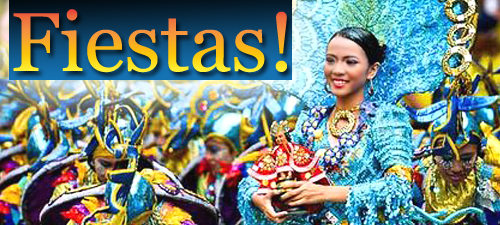 MA, THEY CALL US PHILIPPINOS?
MA, THEY CALL US PHILIPPINOS?
Why is “Filipino” spelled with an “F” when there is not even an “F” in the Pilipino alpha-bet? And why do many Filipinos pronounce their F’s as P’s?
And don’t you get a kick when you hear our born-and-bred fellow Kiwis call us Philippinos?
I don’t know about you, but when it comes to understanding our Filipino-ness, it has been the experience that to understand these things it’s probably better to look for an explanation outside of the Philippines in search of clues or parallels beyond our very Filipino frames of mind.
Let’s take for instance the very premise of the questions raised above that the “Pilipino alphabet” does not have “F” in it. That premise is only correct if you approach it from a perspective which uses pre-Hispanic phonemes as basis. In other words, we don’t have the “F” if you’re thinking of the “smaller” Filipino alphabet which had only 20 “letters”, that is – the old “Abakada“, which was created by Lope K. Santos in 1940. He supposedly patterned it after the Baybayin despite the fact that the latter is actually technically a syllabary, not an alpha-bet, and in any case is written very differently from Latin-based alphabets.
Next. If the country where most of us were born in is called the Philippines, why are we not called Philippinos instead? Well, according to Daniel Engber who’s written something about it in Slate.com, here’s why:
“The Philippines have only been called the Philippines (with a “Ph”) since the United States bought the country from Spain around the turn of the 20th century, after the Spanish-American War. Under Spanish colonial rule – which extended back to the 16th century, the country had been called “Las Islas Filipinas,” after King Felipe II. For Americans, Felipe was Phillip, so Las Filipinas became the Philippines. While the name of the country changed, the name of the nationality did not. Those who lived in the renamed Philippines were still called Filipinos.”
EVEN MORE CONVOLUTED
Then, to confuse matters more, the term “Pilipino” derives from an even more convoluted story of about how the Philippines got its national language. There was no official, native language during both the Spanish and American Colonial Periods in Philippine history. As a matter of fact, those living on the islands at the time could be divided into as many as 120 different groups, each using their own dialect.
The desire to create a mother tongue increased when the United States pulled out of the country and the Philippines became a commonwealth in the 1930s. A national institute was given the task of making one of the dominant native dialects the official language. Eventually, they decided on Tagalog. Speakers of the other dialects, however, felt marginalised and the national language was renamed Pilipino in 1959. Although officially based on Tagalog, Pilipino incorpo-rated elements of the country’s other native tongues.
And speaking of the Spaniards, the word “Filipino” itself should not come as a surprise since the Spanish “efe” ( or, ‘f’) is one of the 27 letters in the Spanish alfabeto. Although the letter “F” had been incorporated into the lingua franca during the centuries of Spanish influence, the country’s post-colonial leadership chose to return to the original alphabet. Foreign words that used “non-native” sounds were respelled to fit the Baybayin-based alphabet. C’s became K’s, X’s turned into SK’s, and the letter F became a P. Filipinos who spoke Tagalog became Pilipinos who spoke Pilipino.
Now back to the question: Why the phonological confusion involving the pro-nunciation of “F”?
Watch The Video
WE ALL ROB YOU VERY MUCH
The answer to that is because, literally speaking, our native Filipino tongues are still very much generally Malayo-Polynesian. And even if we can read, write and speak English fluently having adopted already a more expansive alphabet, most of us are not naturally hard-wired for words with the “F” phoneme or for that matter, the “V” phoneme. It’s as simple as that.
Now before anyone else makes fun about how some of us may enunciate certain words in English, they best keep in mind that pronouncing foreign words is really not easy for almost everyone else, especially if the sound that needs to be produced is non-existent or has no comparables in their own native tongue or language.
For example, for the Anglicized ear, the French can’t seem to pronounce “H” quite properly and the Germans and the Dutch appear to mistake “V” for “W” quite regularly when these people speak English. That’s also why the Brits can’t quite produce the rolling “R” perfected by the Spaniards.
What’s more, learning to read Scandinavian languages is easier than learning to speak them because they use a lot of glottal stops and other what-nots. And when it comes to the Arabs, whose words are pronounced more throatily, they find learning a language like Vietnamese or Chinese, which are very nasal, extremely difficult. Then, there are the Japanese, who don’t really use “L” and “V” in their language and will pronounce “We will love you very much!” as, “We will rob you very much!”
Oh, one last word on the matter. You can bet that most Filipino-Kiwis anywhere you find them will not have any trouble twisting their tongues around this English language tongue twister – Did Peter Piper pick a peck of pickled peppers? If Peter Piper Picked a peck of pickled peppers, Where’s the peck of pickled peppers Peter Piper picked?
Enough said about that, eh?

 During the Spanish
During the Spanish





























